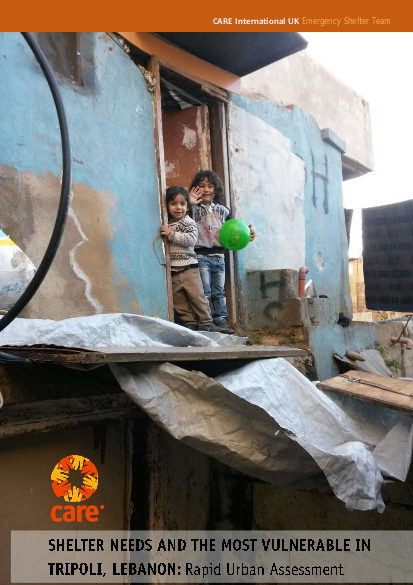
The purpose of this follow-up and detailed assessment to a 2014 situation report study was to identify and understand the different living conditions for the Syrian refugees as well as the conditions for vulnerable Lebanese in the hosting communities in Tripoli City, to provide an overview of the present shelter and WASH situation, and to feed into the identification of a specific intervention model and strategy (theory of change) that could improve and stabilize the living conditions and social dynamics in the most vulnerable neighbourhoods in Tripoli City.
The assessment aimed to establish the main areas of concern and risk for women, men, girls and boys by investigating living conditions, Shelter, WASH, and protection needs in a range of different neighbourhoods across Tripoli. Wider cross-cutting issues linked to shelter and WASH sectors that were also considered included:
- Discrimination/marginalisation against refugees or other marginalized groups
- Lack of land/property tenure and its effect on local and refugee population
- Coping mechanisms to meet financial demands
- Religious, political, or ethnic minority groups
Resource collections
- UN Habitat - Urban Response Collection
- Urban Response - Urban Crisis Preparedness and Risk Reduction
- Urban Response Collection - Community Engagement and Social Cohesion
- Urban Response Collection - Economic Recovery
- Urban Response Collection - Environment and Climate Change
- Urban Response Collection - Housing, Land and Property
- Urban Response Collection - Urban Crisis Response, Recovery and Reconstruction
- Urban Response Collection - Urban Resilience